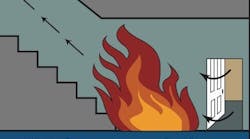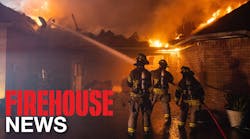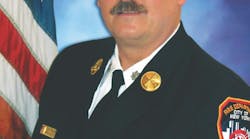Big changes are underway inside the battered Federal Emergency Management Agency (FEMA), but it’s not going to be the total dismantling and rebuilding that was recommended by the latest U.S. Senate report on what went wrong in the Katrina disaster. The 800-page document is the result of hearings held by the Homeland Security and Governmental Affairs Committee, chaired by Sen. Susan Collins (R-Maine), who bluntly wrote: “…FEMA is in shambles and beyond repair, and it should be abolished.â€
Titled “Hurricane Katrina: A Nation Still Unprepared,†the report is highly critical of how federal, state and local governments failed to properly prepare for and respond to the Gulf Coast disaster. It makes 86 recommendations – including some proposed by previous congressional investigations – but goes further than the others by calling for FEMA to be reorganized and renamed as the “National Preparedness and Response Authority.†It would still be a part of the Department of Homeland Security (DHS), but its head would report directly to the President as well as the DHS secretary when a catastrophic event occurred.
Both the White House and DHS Secretary Michael Chertoff expressed opposition to some of the report’s key proposals. For example, the new agency would have control over billions of dollars in grants to state and local governments (including fire departments) that FEMA was supposed to have had in the original plan that created DHS. It also would bring preparedness and response programs back together instead of separating them as Chertoff is trying to do under his own “Stage Two†reorganization project. He also dislikes the idea of any DHS official being empowered to break out of the chain of command and go directly to the President in a crisis – which is exactly what Michael Brown, the fired FEMA director, attempted to do when they were overwhelmed by Katrina.
While most members of Congress agree that last year’s hurricanes left FEMA in shambles, there is wide disagreement over what should be done about it. In theory, many like the idea of abolishing the agency and starting over from scratch. However, as a practical matter, they’re afraid of getting caught in a drastic makeover in the midst of the hurricane season, which starts this month. Some want to remove FEMA from DHS and restore it as an independent, cabinet-level agency. Others object to that approach because it would create another huge, independent bureaucracy; they want to keep FEMA subordinate to DHS, but give it more money and authority.
At least three different bills dealing with the FEMA problem are being drafted in the House and the Senate and more are expected to surface. The House Homeland Security Committee has a bill that would establish an Emergency Management Directorate within DHS, headed by an under secretary, who also would be the FEMA director, with two deputies for preparedness and response divisions. Given all of the different views on what should be done, it seems most likely that none of the drastic changes will occur, though FEMA will be beefed up and given a more prominent role within DHS.
A reasonable person might ask, what difference does it make as to how FEMA and DHS are reorganized? Why should anyone care about the bureaucratic pecking order that fascinates Washington? After all, DHS has been in a state of perpetual reorganization since the day it was conceived and FEMA is about to undergo its third reorganization in the past four years. What impact does any of this have on the firefighters who have to respond when disaster strikes?
Unfortunately, organizational structure and who reports to whom does count. There’s something bitterly ironic about Congress blaming everyone but itself for DHS and FEMA failures. It was a small group of plotters in the Senate who hijacked the original DHS plan by taking grant money and power away from FEMA and giving it to the Office of Domestic Preparedness (ODP), which was supposed to become part of FEMA. Instead, ODP was smuggled out of FEMA, put in another directorate and given control over all first responder grants, including the fire programs. It was done to maintain the oversight authority of a few senators (and their staffs) and to satisfy the police, who feared that the fire-rescue service would have an advantage within a strong and viable FEMA. The end result: no one with any fire experience has ever had a voice inside ODP.
Maybe things will change in this latest reorganization. Chief R. David Paulison, the U.S. Fire Administrator and the nation’s highest-ranking fire officer, has been nominated to be the FEMA director and given the monumental task of rebuilding an agency that truly has been a “shambles.†If he succeeds, it will be great for the country and good for the fire service.
Hal Bruno, a Firehouse® contributing editor, retired as political director for ABC News in Washington and served almost 40 years as a volunteer firefighter. He is a director of the Chevy Chase, MD, Fire Department and chairman of the National Fallen Firefighters Foundation.





